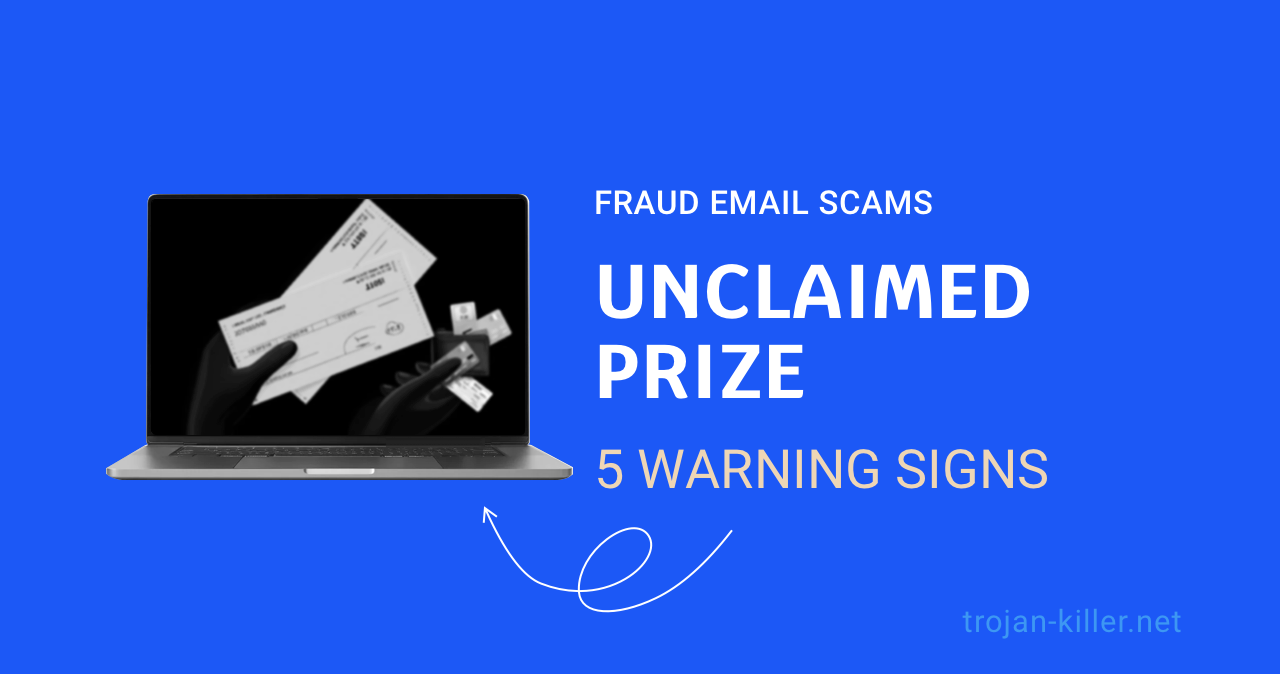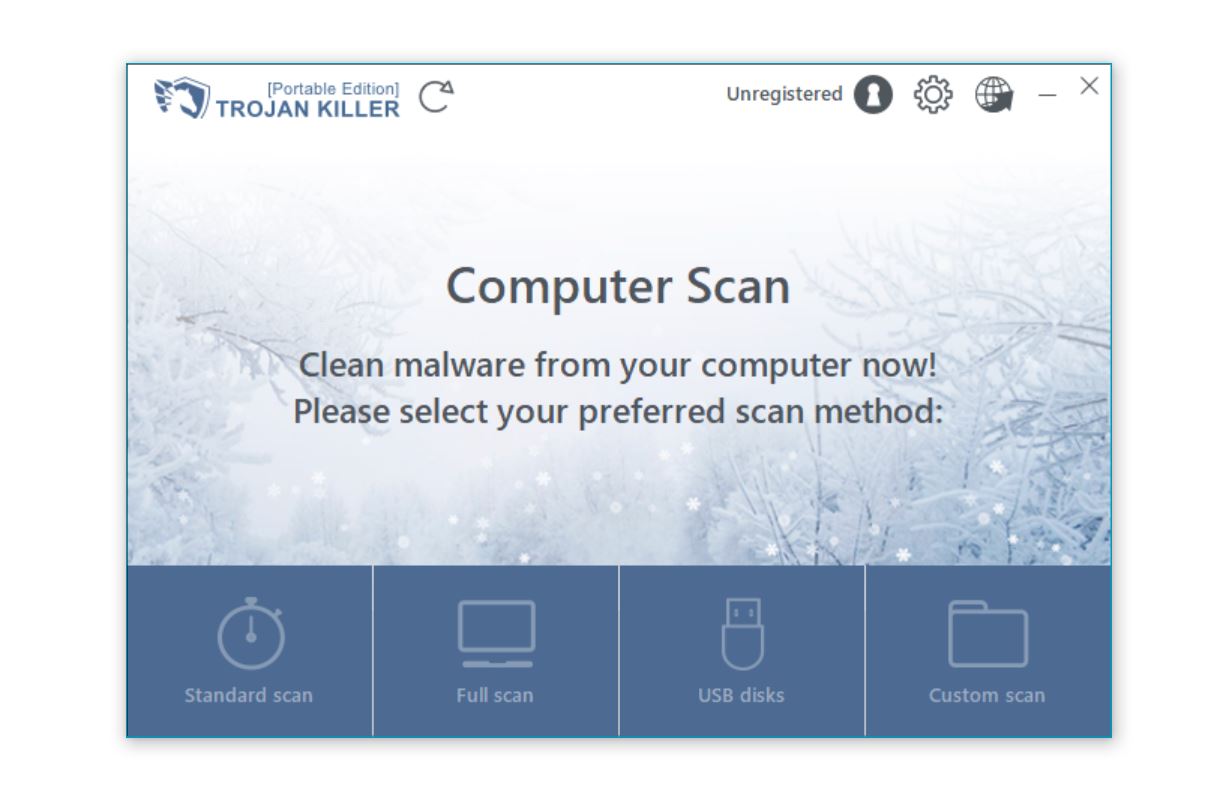Physical Address
Lesya Kurbasa 7B
03194 Kyiv, Kyivska obl, Ukraine
Physical Address
Lesya Kurbasa 7B
03194 Kyiv, Kyivska obl, Ukraine

The Unclaimed Prize Email Scam is a prevalent phishing attack designed to trick recipients into disclosing sensitive personal information and paying fraudulent fees. This comprehensive guide provides detailed analysis of how these scams operate, ways to identify them, steps to take if you’ve been affected, and prevention strategies. By following our expert advice, you’ll learn how to recognize these deceptive messages and protect yourself from potential identity theft and financial loss.
| Common Names |
|
| Type | Phishing, Scam, Social Engineering, Fraud |
| Platforms Affected | All email platforms and devices |
| Fake Claim | Recipient has won a large sum of money |
| Risk Level | High – targets personal information and financial assets |
| Potential Damage | Identity theft, monetary loss, unauthorized access to accounts |
| Distribution Methods | Deceptive emails, spam campaigns, purchased email lists |
| Common Contact Methods | Phone numbers with international prefixes, generic email addresses |
The Unclaimed Prize Email Scam is a sophisticated phishing attack where cybercriminals send fraudulent messages claiming the recipient has won a substantial cash prize in a lottery or contest they never entered. These deceptive emails typically inform victims they’ve won millions of dollars or pounds and must claim their prize before a specified deadline.
What makes these scams particularly dangerous is their psychological manipulation – creating a sense of urgency and excitement that can override critical thinking. The scammers often impersonate legitimate organizations, use official-looking letterheads, and include just enough detail to appear credible to unsuspecting recipients.
According to GridinSoft’s phishing threat analysis, lottery and prize scams remain one of the most effective social engineering tactics, generating millions in fraudulent revenue annually for cybercriminals worldwide.
Identifying these scams often comes down to recognizing several telltale red flags:
Source: GridinSoft Threat Analysis, visualization of Unclaimed Prize scam progression
Understanding the methodology behind these scams can help you identify and avoid them:
Scammers obtain email addresses through various means, including data breaches, purchased lists, or harvesting from public websites. They then launch mass email campaigns, often sending thousands or millions of messages. While most recipients will ignore these obvious scams, the attackers only need a small percentage to respond to make their operation profitable.
The success of these scams relies heavily on psychological manipulation tactics:
The Unclaimed Prize scam typically progresses through several stages:
For those interested in understanding the technical aspects of these scams:
A typical Unclaimed Prize scam email contains several key components:
Below is the text from an actual Unclaimed Prize scam email:
Subject: Final notification of payment of unclaimed prize
Final notification of payment of unclaimed prize
This is to inform you that the office which is in charge of unclaimed prize in United Kingdom has appointed our law firm to act as a legal advisor in processing and payment of a winning fund which is insured in your name.
The total amount is currently £2,506,315.00 the original winning amount was £1,906,315.00
According to British law, the owner must always be reminded after every two years about his existing prize.
We would like to point out that the lottery company will check and confirm your identity before payment.
Please contact Barrister Diego Antonio on Tel: +447452295808.
E-mail: diego.antonio@scccapitalinvestments.co.uk
Please don’t forget that this claim should be done before the 15/04/2025.NAME: –
ADDRESS: –
LOCATION: –
COUNTRY: –
TELEPHONE –
EMAIL –Best regards
Charlotte Brown.
Security researchers can identify several technical red flags in these emails:
Follow these best practices to avoid becoming a victim of Unclaimed Prize scams:
While the Unclaimed Prize scam itself is social engineering rather than malware, scammers sometimes include malicious attachments in their emails. Trojan Killer can help protect your system:

Implement these email security practices to minimize your risk:
For comprehensive protection against email-based threats, review our complete malware and scam prevention guide for additional security recommendations.
If you’ve already interacted with an Unclaimed Prize scam email, take these steps immediately:
People fall for these scams due to a combination of psychological factors. The prospect of unexpected wealth creates excitement that can override critical thinking. Scammers exploit basic human emotions like hope, greed, and optimism. They create artificial urgency with tight deadlines, preventing victims from researching or consulting others. Additionally, these scams often target vulnerable populations, including elderly individuals, those experiencing financial difficulties, or people less familiar with common online scams. The scammers also employ social engineering tactics that make their communications appear legitimate, such as using official-sounding titles, referencing real organizations, and creating professional-looking documents. The relatively low initial fees requested ($50-$500) may seem reasonable compared to the promised millions, making victims more willing to take what seems like a small risk for a potentially life-changing reward.
Unfortunately, recovering money sent to scammers is extremely difficult and often impossible. If you paid by credit card, you may be able to dispute the charge with your credit card company, though success isn’t guaranteed. For wire transfers, Western Union and similar services generally cannot recover funds once they’ve been picked up by the recipient. Cryptocurrency transactions are virtually irreversible. Bank transfers might be recoverable if reported very quickly (within 24-48 hours), but chances diminish rapidly after funds leave your account. Your best course of action is to immediately report the fraud to your financial institution, file reports with law enforcement and consumer protection agencies, and document all communications with the scammers. While recovery is unlikely, reporting helps authorities track scam operations and potentially prevent future victims. Most importantly, cease all communication with the scammers and don’t send additional money in hopes of recovering previous payments—this is a common secondary scam targeting existing victims.
To verify a prize notification’s legitimacy, start by researching the organization independently—never use contact information provided in the notification itself. Legitimate contests will have verifiable public records and rarely contact winners via unsolicited emails. Check the organization’s official website using a web address you find independently, and contact them directly through official channels. Be aware that legitimate prizes never require upfront fees of any kind; taxes on winnings are either paid directly to tax authorities or withheld from the prize amount. Remember that you cannot win contests you never entered—legitimate sweepstakes require registration. Examine the email closely for grammatical errors, generic greetings, and pressure tactics. Verify any mentioned registration numbers or authorization codes with regulatory authorities. Legitimate prize notifications will include specific details about how and when you entered. When in doubt, consult with a trusted financial advisor or attorney before responding to any prize notification, and remember the golden rule: if it sounds too good to be true, it almost certainly is.
Yes, Unclaimed Prize scam emails can absolutely contain malware, adding another layer of risk beyond the social engineering aspects. Scammers often attach files disguised as “prize claim forms,” “winner verification documents,” or “official lottery certificates” that contain malicious code. Opening these attachments can install various types of malware including keyloggers (to capture your passwords), remote access trojans (giving scammers control of your computer), or ransomware (encrypting your files and demanding payment). Some scam emails include links to fake websites that automatically download malware when visited. This malware can operate silently in the background, stealing sensitive information like banking credentials and personal data without your knowledge. To protect yourself, never open attachments or click links in unexpected emails, even if they appear interesting or legitimate. Using security software like Trojan Killer that can scan email attachments before opening them provides an additional layer of protection against these combined social engineering and malware attacks.
Unclaimed Prize email scams represent a persistent threat in our digital landscape, combining social engineering tactics with financial fraud to target unsuspecting victims. The promise of unexpected wealth creates a powerful psychological hook that can bypass our normal skepticism and critical thinking.
These scams succeed by exploiting human psychology—creating excitement, urgency, and hope while appearing just legitimate enough to be believable. The technical sophistication of these operations continues to evolve, with scammers improving their impersonation tactics and sometimes including malware as an additional attack vector.
By understanding how these scams operate, recognizing the warning signs, and implementing the protective measures outlined in this guide, you can significantly reduce your risk of becoming a victim. Remember that legitimate prizes never require upfront payment, and you cannot win contests you never entered.
If you’ve encountered suspicious emails claiming you’ve won a prize, the safest approach is to delete them immediately. For added protection against email-borne threats, consider using security solutions like Trojan Killer to scan attachments before opening them.
Stay vigilant, maintain a healthy skepticism toward unexpected “windfalls,” and remember that protecting your personal information is ultimately more valuable than any promised prize.